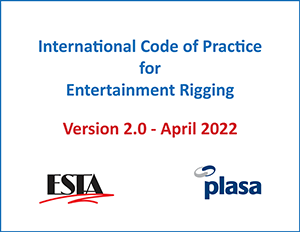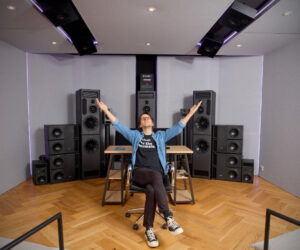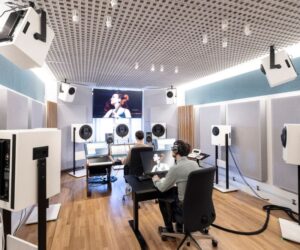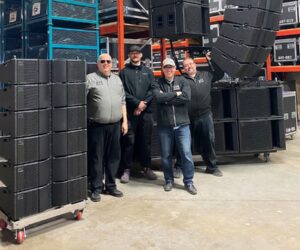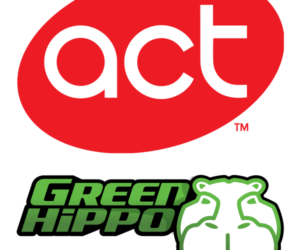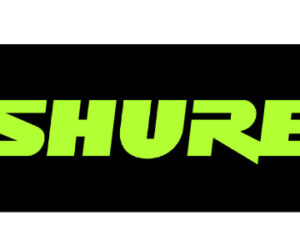ESTA and PLASA have announced the release of an updated version 2.0 of the International Code of Practice for Entertainment Rigging (ICOPER), which is available as a free download at www.esta.org/icoper or www.plasa.org/icoper.
Submissions from the international rigging community were received in response to a call for comments in late 2021. The document’s authors, Nick Barnfield (New Zealand), Tiny Good (Australia), Chris Higgs (United Kingdom), Ed Kish (United States), Bill Sapsis (United States), and Roy Schilderman (The Netherlands) praised the commentors for their consideration and the expertise they brought to the task.
Higgs notes, “Each comment was discussed at length in our zoom calls, which were facilitated by Lori Rubinstein from ESTA. Some comments acted as a catalyst, causing us to rethink and rewrite the language in the code, while in other cases, comments led us to closely examine and reaffirm the existing statements. In my view the industry is aware of our lead and I believe ICOPER is already influencing other codes/working practice so now is the opportunity to get it spot on.”
Good adds, “Four years down the road from the creation of the original document it was great to come back to it with fresh eyes and re-evaluate the work we had done. It was enjoyable to get back together as a group again, and we quickly found the old working rhythm we developed while crafting the original document. It was nice to see that much of our original content held up over time. All of us were grateful to have input from those who provided comments. Their input was invaluable in reviewing and updating the code.”
Revisions have been provided to the organizations that had previously created translations of the original document and updated versions will be released as they are completed. “There were a number of translations in progress when the pandemic caused work on those to come to a halt,” Rubinstein states. “All the organizations involved have expressed their intention to resume work soon. In the pipeline are translations into Norwegian, Italian, Korean, Romanian, and Russian, as well as the previously published Traditional Chinese and Polish versions.”
The practices described in the code are intended to provide a universal foundation for those engaged in planning, managing and executing entertainment rigging. ICOPER also provides guidelines for those who wish to develop policy, design training content or help establish certification criteria.
Key areas covered include Pre-Installation, Planning and Engineering; Drawing Conventions; Equipment Selection; Onsite Rigging Work, Lifting Operations, Show Rigging Operations, De-Rigging Work; and Post Production. Also included are a glossary, an appendix covering determinate and indeterminate rigging systems, and a regional comparison of terms pertaining to Standards.
The authors believe that acceptance of this universal code will help promote regulatory harmony and reduce potential conflicts in practice between regions around the world. They hope the resulting improvements in communications and relations with regional and local regulators will be particularly beneficial to those professionals involved in international production. The original version of ICOPER has been downloaded by individuals in over 50 countries.


